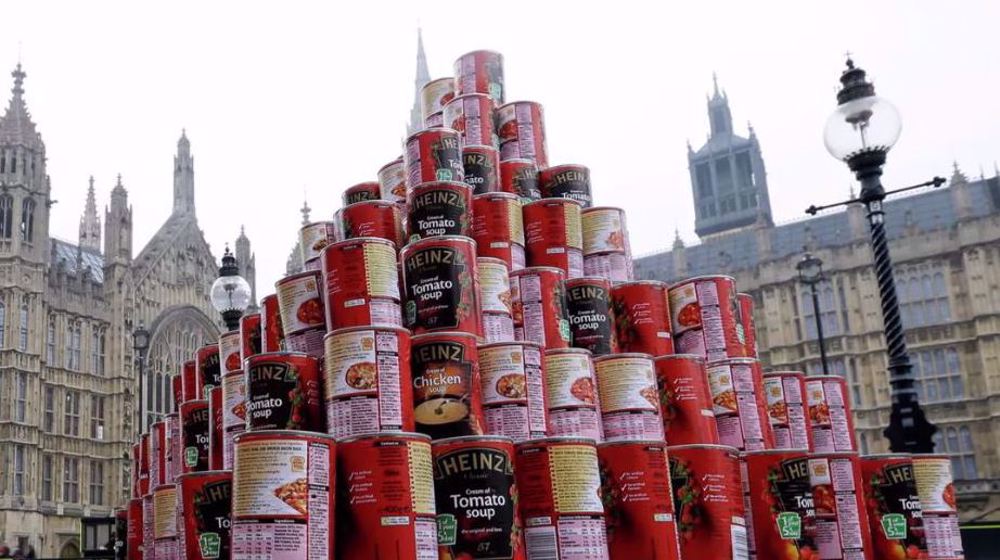An “ever-increasing” number of households in UK, including teachers, pensioners, and employees of the NHS, are turning to food banks for assistance as a result of the cost of living issue and country’s high inflation, according to new statistics.
The research conducted by the Independent Food Aid Network (IFAN), shared with the Observer, found that almost 90% of food banks surveyed reported increased demand in December 2022 and January 2023 compared with a year earlier.
According to the study, about half of the 85 organizations running 154 food banks in the UK which responded to the survey admitted that if demand increased further they would either have to cut support or turn households away.
The Trussell Trust, which with more than 1,300 food banks is the UK’s biggest provider, expects this winter will have been its busiest ever, warning in November that food banks were at “breaking point”. Between April and September alone it distributed 1.3m emergency food parcels – a third more than the same period in 2021 and over 50% more than pre-pandemic.
“It’s very clear that people have been trying to muddle through the winter on credit and are now building up debts that will push people over the edge,” said IFAN coordinator, Sabine Goodwin, commenting on the study’s results.
She accused the government of “unsustainable and unethical” reliance on charitable food aid, warning that without a change of approach there will be “nowhere for people to turn.”
The developments come as the Office for National Statistics (ONS) said earlier this week that Britain’s annual inflation rate fell to 10.1% in January, continuing a decline from 10.5% in December and its recent peak of 11.1% in October 2022. Even so, the current inflation rate is close to its highest level in 40 years, according to the ONS.
However, food inflation is at 16.7% and the cost of gas is nearly 130% higher than a year ago in the UK. The Office for Budget Responsibility forecast in November that households’ disposable income would fall by 4.3% in 2022-23, the largest drop since comparable records began in 1956.
Food banks are struggling to meet record demand from people who are in work – including the NHS staff and teachers – the IFAN research found. More than 80% reported supporting a significant number of people for the first time, while many said demand was growing among pensioners and families with babies.
Cost of living increases were given as the biggest problem, followed by inadequate wages and waiting times for initial universal credit payments. Benefit restrictions and deductions were cited by one-third of independent food banks as a motivating factor.
Notably the workers who are going out on strike make up a large portion of those who have turned to food banks as the most extensive public sector strikes in decades have been brought on by a real earnings decline and rising inflation.
An official from the government meanwhile stated “we recognize the pressures of the rising cost of living, which is why we delivered £1,200 of direct support to millions of households last year, including £400 towards energy costs, and will be providing another £1,350 of support to the most vulnerable households in 2023–24.
The raging cost of living crisis in the UK began in 2021, when prices for many basic necessities began to rise faster than household incomes, causing real incomes to plummet. Apart from soaring inflation, the COVID-19 pandemic and the West's sanctions imposed on Russia over its special military operation in Ukraine are among the major factors driving the crisis.
UK government ministers warned last week that the “severe sanctions” that Western countries slapped on Russia would have a knock-on effect on the cost of living in Britain, adding that citizens should be prepared to take an “economic hit.”



























